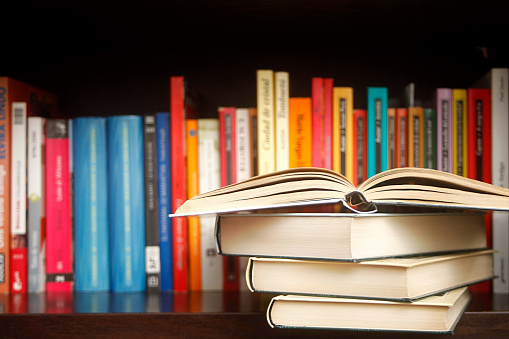
“There’s something wrong with me, I’ve realized over time that I see things differently than others. Specifically, at school, every time I try to read or write, it is very difficult. The teachers say that I might have a learning disability of some sort.” Lots of people all over the world suffer from something called a learning disability, and they don’t even know it!
There are people that don’t know what a learning disability is or that there are different types. Learning disabilities are neurological disorders stemming from a person’s brain, being weird differently than others. That means one or more of the psychological processes involved with comprehending or using language is not working normally. About all children with learning disabilities have trouble with not only the basic skills of reading and writing, but also with reasoning and organizing information in meaningful ways. The term ‘learning disability’ covers all different things for example: perceptual disorders, development aphasia (inability to produce or understand language), dyslexia and brain injuries. There are many different types of disabilities out there as you can see.
Dyslexia is the most common learning disorder in the world. When someone who suffers from dyslexia is reading, the letters in the words get mixed up or even left out, which makes it very hard to almost impossible for them to read. Therefore, makes it very difficult for them in school or anywhere. Because of this, dyslexic children during school often feel left out or less capable than others so, dyslexic children usually struggle to keep up with their classmates. That can also affect their focus to learn. Reading disabilities are very similar to dyslexia in lots of different ways.
Reading disabilities are a very common type of learning disability. Children with this disorder have difficulty with several things like recognizing letters words and remembering what they mean, along with the sounds and letter groups that make up words. Other kinds of reading disabilities are related to eyesight such as farsightedness, hear sightedness, astigmatism, the tendency for the eyes to cross or unequal images in each eye. These vision problems can be diagnosed and corrected by an ophalmologist or another trained eye specialist. Hearing disorders can also affect the ability to read because words cannot be sounded out correctly. Fun fact if you have a reading disability you may have another disability!
Another kind of disability is a writing disability (my favourite one). Children with this disorder have problems with the basic skills of spelling, punctuation, and grammar, that is why they usually have another kind of disorder. For example, a reading or mathematics disability. There are three main types of writing disabilities: the inability to form letters and numbers correctly (dysgraphia), to write words spontaneously or from dictation, to organize words into meaningful thoughts. Since there are all those different types of writing disabilities there are different causes for all of them. For example, people with dysgraphia may have delays in hand-eye coordination and difficulties concentrating. People who are unable to write words from memory or dictation appear to have defects in their visual memory (they cannot remember what words look like). People who produce legible scrip cannot organize their own thoughts on paper and may have cognitive processing problems. Because this disorder is very little studied specific causes have not yet been determined. Also, there are not really any tests for diagnosis or treatment sadly. But fortunately, there are known diagnosis and causes for other disorders.
Parents are usually the first to notice a disability in their child. It’s also very normal for parents to is or overlook their child’s symptoms, so sometimes school staff notices it first, because they are more educated. When someone is suspected of a disability their next step should be to get tested. You can see specialists such as: psychiatrists, clinical psychologists, and social workers, to determine if the child does in fact have a learning disability. The causes of a learning disability are cooler than the diagnosis in my opinion.
There are three main causes of a learning disability. The brain is divided into different sections that control different behaviors for example: the ability to speak, the ability to understand the spoken word, the ability to recognize what words and numbers mean. For people with a learning disability, one or more of these sections may not function normally. Another cause is inheriting a learning disability, children’s families with a history of disorders are more likely to develop one. It can also be caused by medical conditions for example: a blow to the head or brain infection can damage certain parts of the brain leading to a learning disorder.
There are many more disabilities in the world and no matter which one you have there is nothing wrong with that. Someone without a disability could have the worst marks in the room and someone with a disability could have the best marks in the room, there is nothing wrong with anyone that has a disability. And hopefully one day people will be more educated one learning disabilities so then nobody will ever have to struggle with finding answers.
- “Reading.” Britannica School, Encyclopædia Britannica, 25 Feb. 2020. eb.com/levels/middle/article/reading/276663#207171.toc. Accessed 16 Feb. 2022.
- “Learning Disorders.” Sick!, UXL, 2007. Gale In Context: Middle School, link.gale.com/apps/doc/CV2643900078/MSIC?u=ko_k12pr_d65&sid=bookmark-MSIC&xid=3b15f64e. Accessed 16 Feb. 2022.
- “Speech.” Britannica School, Encyclopædia Britannica, 12 Aug. 2016. eb.com/levels/middle/article/speech/277167#208508.toc. Accessed 16 Feb. 2022.
